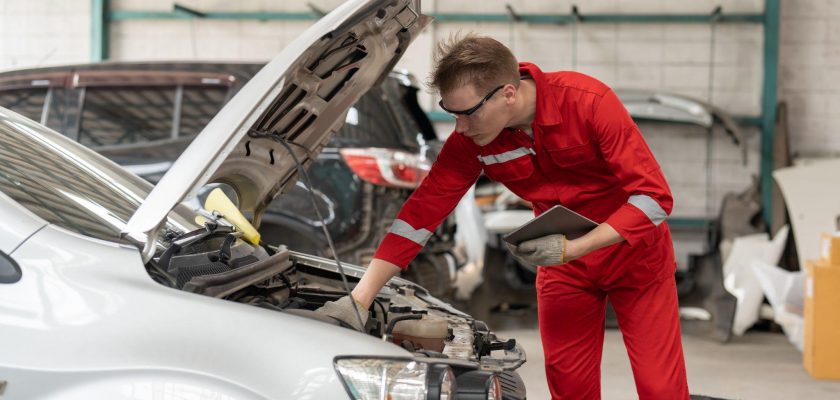Mitsubishi’s engine development has consistently demonstrated innovative engineering solutions and exceptional performance capabilities across diverse applications. From compact economy vehicles to high-performance sports cars and commercial applications, Mitsubishi has created engines that balance advanced technology with proven reliability and distinctive performance characteristics.
Foundation of Mitsubishi Engine Excellence
Mitsubishi’s approach to engine development has always emphasized practical innovation combined with robust engineering principles. The company’s diverse industrial background, including heavy machinery and aerospace applications, has influenced their automotive engine design philosophy, resulting in powerplants that prioritize durability and performance under demanding conditions.
Early Mitsubishi engines established the company’s reputation for creating reliable powerplants that could operate effectively under various environmental and operating conditions. This emphasis on adaptability became a cornerstone of Mitsubishi’s engineering approach and continues to influence current engine development.
The company’s investment in advanced materials and manufacturing processes enabled the production of engines with tight tolerances and exceptional build quality. These capabilities supported Mitsubishi’s reputation for producing powerplants that maintained performance characteristics throughout extended service lives.
Turbocharged Engine Pioneering
Mitsubishi has been at the forefront of turbocharged engine development, creating some of the most successful forced induction systems in automotive history. The 4G63 engine, in particular, became legendary for its combination of robust construction and exceptional response to performance modifications.
The development of advanced turbocharging systems allowed Mitsubishi to extract exceptional power from relatively small displacement engines while maintaining reasonable fuel economy during normal driving. These systems demonstrated sophisticated engineering in wastegate controls, intercooling, and boost management.
Mitsubishi’s approach to turbocharger integration emphasized reliability and longevity, with systems designed to operate consistently under varying conditions without requiring frequent maintenance or component replacement. This reliability focus became a distinguishing characteristic of Mitsubishi turbocharged engines.
Evolution Engine Technology
The Evolution series engines represent the pinnacle of Mitsubishi’s performance engine development, incorporating advanced technologies and premium materials to deliver exceptional power and reliability. These engines demonstrated Mitsubishi’s capability in developing powerplants for the most demanding applications.
Variable valve timing systems in Evolution engines provided optimization of performance characteristics across the rev range while maintaining reliability under high-stress conditions. These systems allowed for aggressive performance tuning while preserving engine longevity and emissions compliance.
Advanced engine management systems in Evolution applications integrated multiple technologies to optimize combustion, boost control, and emissions characteristics continuously. These sophisticated control systems enabled precise tuning for maximum performance while maintaining reliability and drivability.

Photo by Hudson McNamara on Unsplash
MIVEC Technology Implementation
Mitsubishi’s MIVEC (Mitsubishi Innovative Valve timing Electronic Control) system represents sophisticated variable valve timing technology that optimizes engine performance and efficiency across various operating conditions. This system demonstrates Mitsubishi’s commitment to advanced engine technologies.
The implementation of MIVEC technology allows for precise control over valve timing and lift characteristics, providing optimization for both performance and fuel economy requirements. This flexibility enables engines to deliver strong performance when needed while maintaining efficiency during normal driving.
Continuous development of MIVEC technology has resulted in more sophisticated systems that provide greater control over valve events and improved integration with other engine management functions. These advancements demonstrate Mitsubishi’s ongoing commitment to engine technology development.
Diesel Engine Expertise
Mitsubishi’s diesel engine development has been particularly successful in commercial and passenger vehicle applications, with engines that provide exceptional fuel economy while delivering strong torque characteristics. These engines demonstrate sophisticated engineering in combustion optimization and emissions control.
Advanced fuel injection systems in Mitsubishi diesels provide precise control over combustion characteristics while minimizing emissions output. These systems enable clean, efficient operation that meets stringent environmental requirements while maintaining performance and reliability.
Turbocharging integration in Mitsubishi diesel engines enhances power output and efficiency while maintaining the low-speed torque characteristics that make diesel engines attractive for various applications. This technology demonstrates Mitsubishi’s expertise in forced induction across different engine types.
Hybrid and Electric Integration
Mitsubishi’s development of hybrid and electric vehicle technologies has required innovative approaches to engine integration that maintain performance while improving efficiency and environmental characteristics. The Outlander PHEV system demonstrates particularly sophisticated integration of multiple power sources.
The engines used in Mitsubishi hybrid applications are specifically optimized for hybrid duty cycles, with modifications that enhance efficiency during charge-sustaining operation while maintaining performance capabilities when maximum power is required.
Electric motor integration with traditional internal combustion engines requires sophisticated control systems that seamlessly blend power sources while maintaining smooth operation and optimal efficiency. Mitsubishi’s success in this integration demonstrates their capability in complex powertrain development.
Manufacturing Quality and Innovation
Mitsubishi’s engine manufacturing processes incorporate advanced technologies and quality control systems that ensure consistent production quality and performance characteristics. These manufacturing capabilities support the company’s reputation for producing reliable, durable engines.
Precision machining and assembly procedures contribute to tight tolerances and consistent component quality, supporting smooth operation and exceptional durability throughout the engine’s service life. These manufacturing standards reflect Mitsubishi’s commitment to engineering excellence across their engine lineup.
Comprehensive testing protocols verify engine performance, emissions compliance, and durability characteristics before engines are approved for production use. These quality control measures help maintain Mitsubishi’s reputation for producing reliable powerplants that perform consistently under various conditions.
Global Applications and Market Adaptations
Mitsubishi engines are designed for global markets, with adaptations addressing different fuel quality, emissions requirements, and operating conditions worldwide. This flexibility demonstrates the robust fundamental design of Mitsubishi engines and their adaptability to diverse applications.
Regional variations in engine specifications reflect local market preferences and regulatory requirements, with power outputs, emissions equipment, and fuel systems modified accordingly. These adaptations ensure optimal performance in specific markets while maintaining reliability and durability characteristics.
The success of Mitsubishi engines in various global markets reflects their fundamental design excellence and the company’s ability to adapt proven technologies for diverse applications and operating environments.
Performance Tuning and Modification Potential
The robust construction and sophisticated design of Mitsubishi engines has made them favorites among performance enthusiasts and tuning specialists. Many enthusiasts specifically seekimported JDM Mitsubishi engines that may offer different specifications or enhanced performance characteristics compared to domestic market versions.
Performance modifications for Mitsubishi engines often focus on enhanced airflow, improved exhaust systems, and engine management tuning to extract additional power while maintaining reliability. The strong basic design of most Mitsubishi engines accommodates these modifications well when properly implemented.
The extensive aftermarket support for Mitsubishi engines reflects their popularity among enthusiasts and their proven performance potential. This support includes both replacement components and performance upgrade options that enhance power output and responsiveness.

Photo by Valdemars Magone on Unsplash
Racing Heritage and Competition Success
Mitsubishi’s involvement in various forms of motorsport, particularly rally racing, has provided valuable development experience that influences production engine design. The success of Evolution models in World Rally Championship competition demonstrated the performance capabilities and durability of Mitsubishi engine technology.
Competition applications often require engine modifications that demonstrate the potential of Mitsubishi architecture under extreme conditions. These racing applications have contributed to the development of technologies that later appear in production engines.
The reputation earned through motorsport success has enhanced consumer confidence in Mitsubishi engines and contributed to their popularity among performance enthusiasts. This racing heritage continues to influence the brand’s performance image and engineering development priorities.
Environmental Technology Development
Mitsubishi’s commitment to environmental responsibility has driven the development of clean engine technologies that reduce emissions while maintaining performance characteristics. Advanced combustion systems and emissions control technologies demonstrate the company’s ability to balance environmental and performance requirements.
The development of more efficient engines with reduced fuel consumption contributes to environmental goals while providing cost benefits for consumers. These efficiency improvements often result from sophisticated engineering solutions that optimize multiple aspects of engine operation simultaneously.
Future environmental regulations continue to drive innovation in Mitsubishi engine development, with new technologies being developed to meet increasingly stringent requirements while maintaining the performance and reliability characteristics that define Mitsubishi powerplants.
Future Technology Development
Current Mitsubishi engine development focuses on integrating advanced electrification technologies while maintaining the performance and reliability characteristics that have established the brand’s reputation. Future powertrains promise enhanced efficiency and reduced environmental impact through sophisticated hybrid and electric integration.
The continued evolution of traditional internal combustion technologies, combined with electrification integration, will likely define Mitsubishi’s future engine development strategy. This approach ensures that Mitsubishi engines will remain competitive and relevant as automotive technology continues evolving.
Investment in research and development ensures that Mitsubishi will continue producing innovative engine technologies that meet future market requirements while maintaining the reliability and performance characteristics that have established their reputation in the automotive industry.
